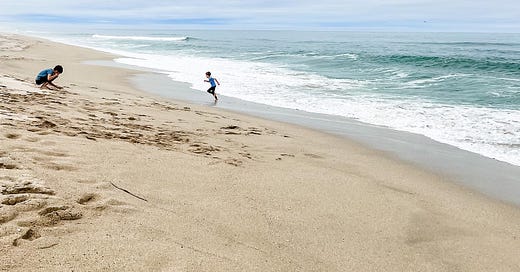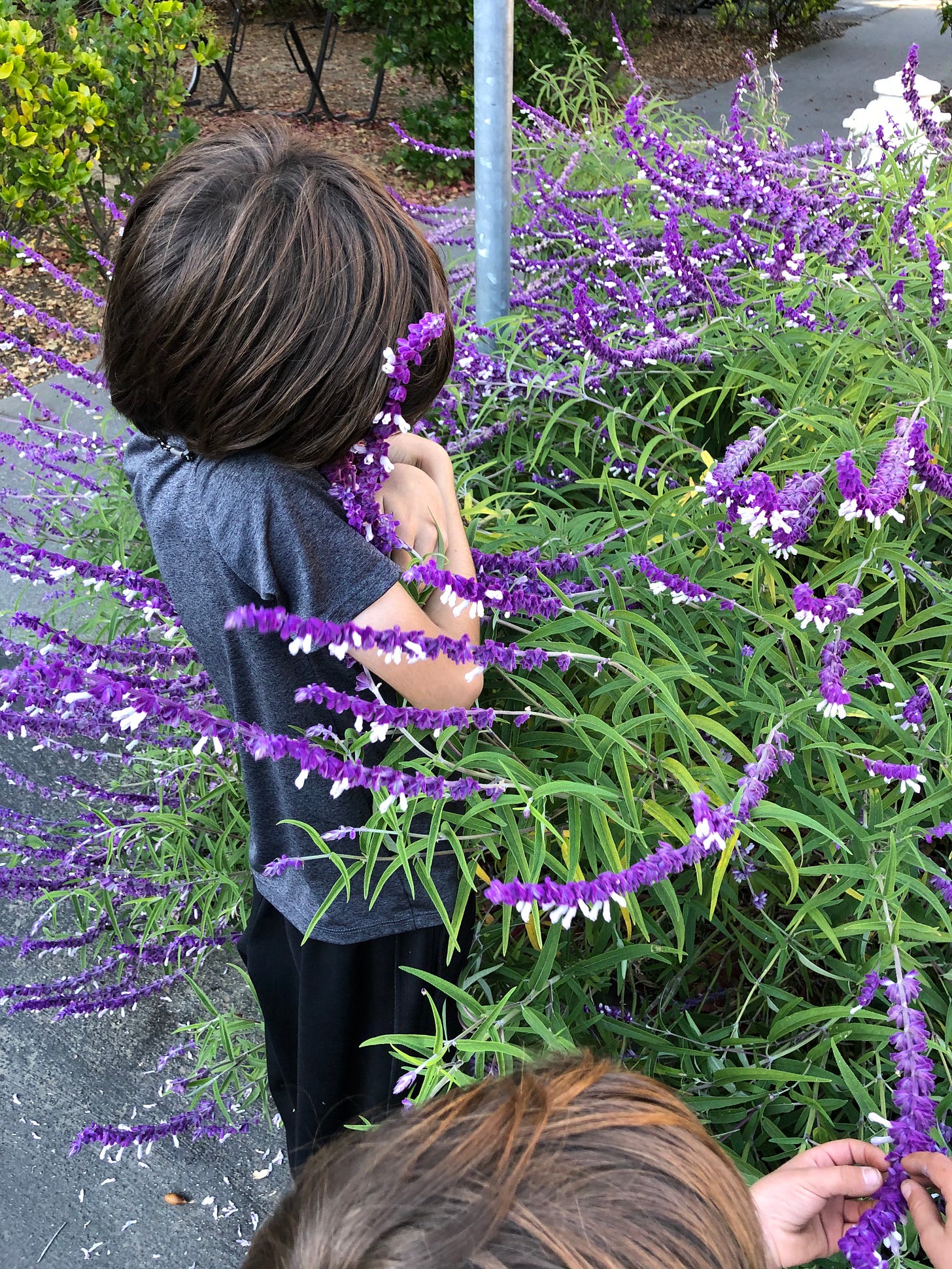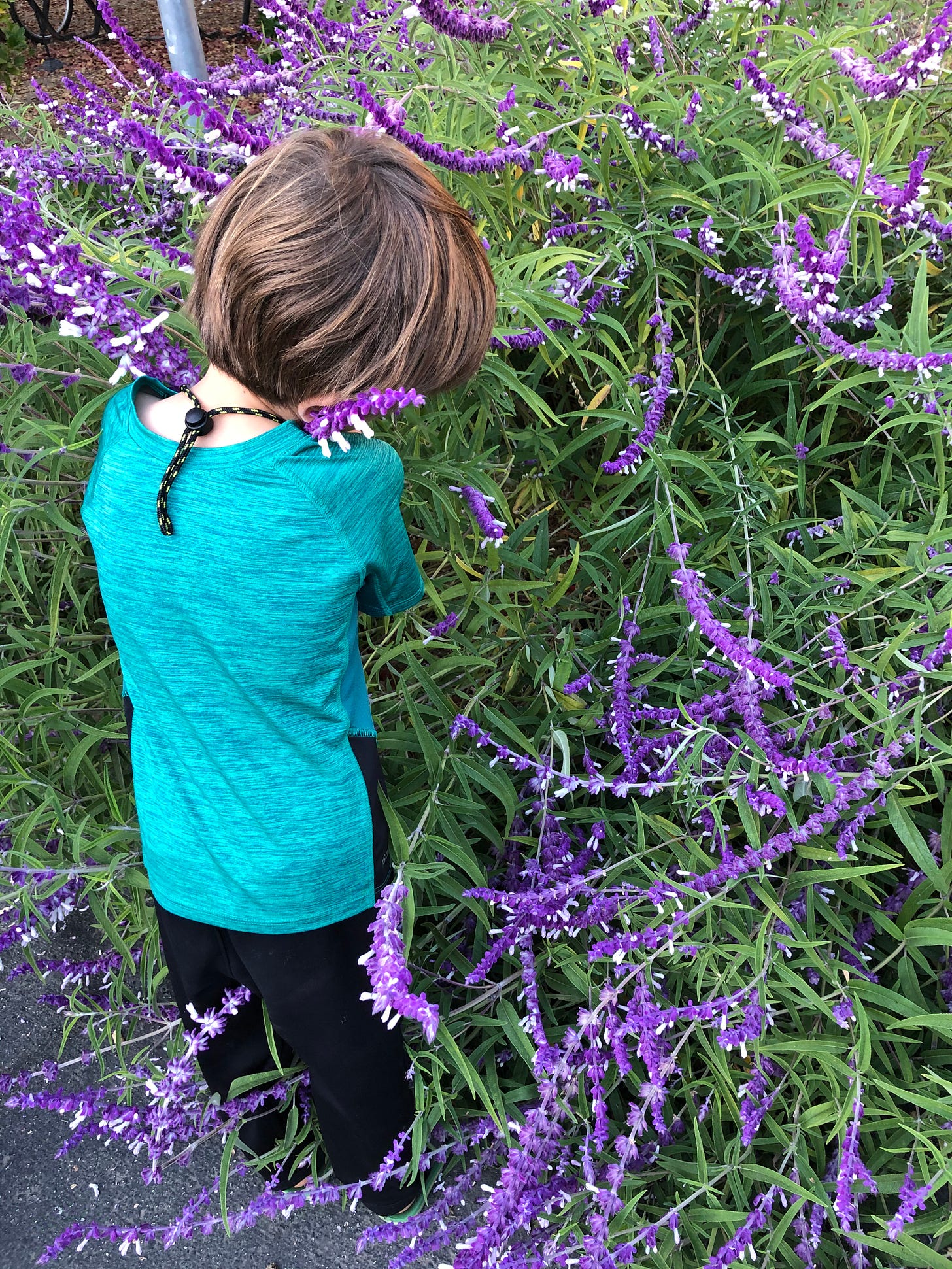What I Hope They Remember
Reflections On Brokenness, Motherhood, and Loving My Sons (and Myself) After Losing My Daughter
Note: This essay was updated and expanded upon on May 10, 2025, to offer a more gentle entry into the piece and thoughtful reflections.
A Gentle Note Before We Begin
This piece mentions infant loss, motherhood, grief, and mental health struggles. If any of these topics feel like they might be too much for you right now, please feel free to skip this one, read with support, or return another time when it feels right for you.
In a split second, the eggs slip from my hurried hand. I cannot stop the cascade of accidental bombshells from exploding all over the kitchen floor. I stare at the mess of liquid insides, ruptured yolks, and shards of eggshell at my feet. I am looking at myself. The moment is a mirror, a metaphor, a form of dissociation, perhaps. My fragility. My brokenness. My inner state exposed.
Most of us have dropped an egg in our lifetime. This was certainly not a first for me. However, this moment was significant enough that I documented it with this photograph. I believe I had been preparing to make pancakes for my sons, who were about two and five at the time. I had been trying to hold together all the shattered parts of myself so they could not see their mother broken into fragments left all over the house. I did my best to shield them from the bombshells hurled at my heart and the way they imploded within me. But the damage left me with sharp edges and left its mark on them in other ways, innocent bystanders to short-tempered explosions and harsh reactions.
Even before my sons were born, long before the year I dropped the eggs, I lamented that my boys would receive a broken version of me. The last time I’d felt whole was before the first breaking, the Great Sadness, that had severed me in two: the death of my first child, their sister, whom they never got to meet.
I lament the unfairness of it all for them.
I lament my human fragility exposed to a life that never seemed to stop dropping its awful bombs.
How desperately I wanted to be whole for them.
How desperately I tried.
How close I almost got…
I tend to write more about grief than motherhood—or if I do write about motherhood, it’s about the grief of losing a child. Some might assume it’s easier to write about motherhood than it is about grief. However, that hasn’t been the case for me. And of course, I do not know motherhood apart from grief. But to write about this season of motherhood as it relates to my sons is something I have shied away from.
In recent years, I’ve started to wonder what my sons will think of their mother-writer not having written about them. If they were to one day take interest in my writing, I wonder if they would feel a betrayal or loss if they discover more words about my grief over their sister’s death than see my love for them recorded in ink. At ten and thirteen, they have already told me they’ve googled me, their dad, and their Grandpa Tom.1 What if they look through my writing one day for glimpses of themselves without finding any?
I’ve held back from writing about motherhood and mothering my sons for a handful of reasons, and maybe not for the reasons you might expect. One is out of trying to protect them and out of respect for their privacy in this strange and sometimes dangerous digital age.2 Another is out of fear of ostracizing readers who may not be mothers and those who may have experienced the death of a child, and may not have gone on to have other living children.
I feel like I live with my feet in two different worlds. One foot planted in the land of bereaved mothers and childless women, and the other foot in the land of mothers with living children. It’s like another kind of split-in-half-severed living.
The memory of my first Mother’s Day after my daughter died has given me pause and has been a reason why I tend to veer away from the topic of motherhood. In church that Sunday, while all the mothers were invited to stand and applauded, I stayed seated with my grief swirling like a hurricane inside me. I felt so othered, so unseen, so hurt. In that moment, something in me vowed never to inflict that same pain on another woman, never to be the reason another woman feels left out for not being a mother in that way.
But in doing so, I’ve neglected a very real reality within my life and a significant part of my story. I am a mother. Not just a bereaved mother, but a mother in the traditional sense to two living, breathing, growing, wonderful sons.
As Mother’s Day approaches, with the topic of motherhood at the top of my mind, my heart has been gravitating towards what’s been hard, especially as I reflect on the past few nights of parenting during which I have not been a very gentle or patient mother.
It would surprise no one that I consider myself a “griefy” person, and facets of my grief surround my failures in mothering my sons. I have spent a lot of time grieving that I am often not the mother I want to be for them. I can have a sharp edge to my voice. I notice my lack and the times I’m not nurturing enough, not affectionate enough, not intentional in my time with them enough. I have so much guilt for the times I have spent in solitude with my work instead of with them, wondering if one day they will resent me for it. I see all the mistakes, failures, and harm I’ve caused my boys over the years, and I fill with grief.
I wonder how my sons will see me. I wonder how they will remember me. I wonder if they will resent me or admire me. I wonder what stories are being stitched in their minds and bodies right now.
As my thoughts wove together all the ways I’d been an imperfect mother, all the worries about what pain my sons might inherit from me, all that I’d gotten wrong, I stumbled across old photos in my phone of them hugging purple wildflowers as tall as them.
The memory surprised me, hugged me, and started to unbraid the narrative I’d been weaving about the ways I’d failed my sons. The photos offer counterarguments and evidence of goodness that tell another story. Of course, the photos on my phone are a highlight reel. The pain and the failings go mostly undocumented, although I know their bodies will hold those memories.
And still, I hope their bodies will also remember the times they hugged wildflowers and wrapped their arms around giant Redwood trees—and I hope those memories remind them of my love. When my boys grow into adults, I hope they still feel inclined to hug flowers and trees—and when they do, I hope they will think of me.
I hope they will remember the mom who read them stories every night.
I hope they will remember the mom who lit up when they walked into the room.
I hope they will remember the mom who went to every sporting event and volunteered at their school.
I hope they will remember the mom who planned scavenger hunts and wrote riddles to help them find hidden gifts.
I hope they will remember the mom who made gingerbread houses and dyed Easter eggs with them.
I hope they will remember the mom who had snowball fights and went boogie boarding in the ocean with them.
I hope they will remember the mom who cultivated confidence in her creativity—who didn’t give up on herself or her art.
I hope they will remember the mom who tried, believed in herself, and kept going in spite of setbacks.
I hope they will see the mom who spent her life transmuting pain into beauty to make the world a better place.
I hope they will remember the mom who faced anxiety, depression, even despair—and still sought help, healing, and support.
I hope they will remember the mom who became more and more light, and less and less shadow.
I hope they will see the mom who experienced some of the darkest pain life has to offer—and persevered.
I hope they will see the mom who inspired them.
I hope they will see the mom who held a deep wonder for the world and reverence for God—and I hope they inherit those too.
I hope they will see the cracks in their mom and the mending too, like kintsugi, the Japanese art of repairing broken pottery, knowing that they are part of the precious gold that helped make her whole.
I hope they will know that even when life breaks them open or pulls them apart, they are no less worthy, no less wonderful; they too can be mended and made new—in their own beautiful, golden-lined way, like their own version of kintsugi.

While listening to the opening of a Coffee + Crumbs podcast episode recently, I was comforted by the reminder that motherhood is an art, not a science. As a creative person who has found so much healing through creativity, this idea births hopefulness in me. Motherhood, grief, life—they’re all creative acts. There are no simple answers, no perfect formulas—only the invitation to create with what we’ve been given.
I may not always be the mother I hoped to be, but I know my boys are getting more than the brokenness in me—they’re getting the best of me, too. While I can’t control the stories they’ll end up telling about me, I know I will do what I can to keep creating a life with them that’s woven in love.
Prompts for Reflection
If something in this reflection resonates with you—whether it’s the feeling of being broken or split apart, the ache of grief, the complexity of motherhood, or the longing to be remembered with love—here are some prompts to gently explore through writing:
Do you struggle to embrace the different versions of yourself or to recognize the good within you?
What do you hope others will remember about you—your children, your family, your community, or your closest friends?
What do you want to remember about yourself? You don’t need to be flawless to be remembered with love.
Or, try one of these more guided invitations, inspired by specific moments in this piece:
Explore a time or area in your life where you’ve felt torn between two identities or communities. What is it like to live in both? What wisdom do you carry because of it?
Reflect on a part of yourself that feels “broken” or burdened by shame or guilt. Then, write about the gold. What mending or healing is still happening there? How might you lovingly receive all parts of yourself?
Take a moment to hold yourself with love.
Keep reading with a 7-day free trial
Subscribe to The Mending to keep reading this post and get 7 days of free access to the full post archives.








